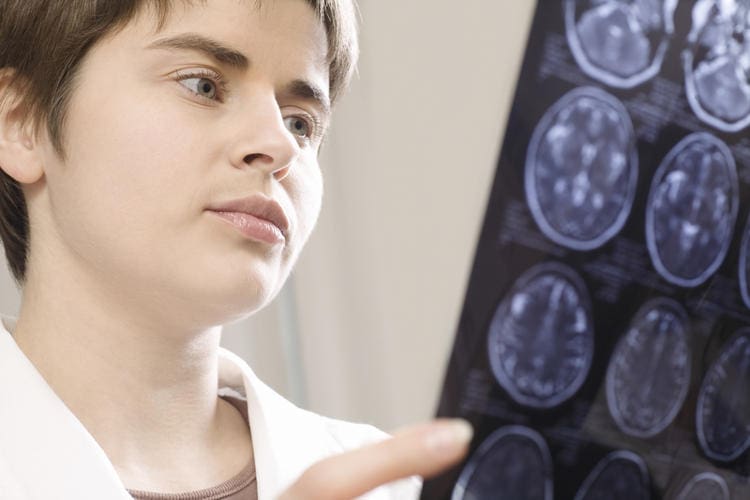What is a CT scan?
A CT (computerised tomography) scan is a sophisticated X-ray that takes cross-sectional and 3-dimensional pictures of any part of the body using a computer.
Why is this test done?
CT scans can help doctors make an accurate diagnosis, particularly when normal X-rays have not detected an abnormality. CT scans can give good pictures of soft tissues of the body, which don’t always show up on X-rays. CT scans can also show bones and blood vessels. Some people will have a CT scan to help determine how well they have responded to a particular treatment, for example, after chemotherapy, or to pinpoint a tumour before radiotherapy or to pinpoint where to take a biopsy sample.
Before the CT scan
Adults
Generally no preparation is needed before a CT scan. Let your doctor know if you have any allergies or if you are pregnant.
Contrast material: Some types of CT scan need to use dye called contrast, to highlight particular structures in the body. The contrast may be given by injection or by mouth. Women may be asked to insert a tampon to outline the vagina.
Children and infants
Generally, children and infants are given a light general anaesthetic or sedative. This is to ensure that they lie still during the test, which can take up to an hour. If your child requires an anaesthetic you will need to make sure he or she does not eat or drink anything for 6 hours before the test. You will also be given the opportunity to speak to an anaesthetist and will be required to sign a consent form. Children who have had sedation or an anaesthetic can usually go home one or 2 hours after the test, if all has gone well.
What happens during the test?
A radiographer (a specialist in taking X-rays) or a specialist nurse will meet you. You will be asked to change into a hospital gown and lie on the scanner table.
The motorised table can move up in the air and then slide so that any part of you can be placed inside the doughnut-shaped scanner. You will be in the CT room by yourself during the test, but you can speak to the radiographer at any time through an intercom.
During the test you will be asked to keep very still. The radiographer will ask you to hold your breath while the picture is taken. A number of pictures will be taken and the table will be moved slightly each time. Parts of the scanner may rotate around you, as the pictures are taken. The scanner may make some noises during the procedure.
For chest and abdominal scans, you will be asked to hold and release your breath many times.
What are the risks?
CT scans are very safe. The only complication that may occur is an allergic reaction to the dye. If an allergic reaction does occur, it will be treated immediately with medicine. Most reactions involve a mild rash or itching. If you have reacted to contrast material before, tell the doctor.
Some medical conditions affect the way your body gets rid of the dye, so read the consent form carefully.
CT scans use X-rays, which are radiation. Exposure to large doses of radiation increases risk of developing cancer or leukaemia later. The radiation exposure from a CT scan is roughly 16 times the radiation from a normal X-ray, however, it is still a low dose of radiation. Radiation doses accumulate over your lifetime, so doctors ensure that these tests are only done when necessary.
If you are pregnant and a CT scan has been advised, make sure your doctor knows that you are pregnant. You and your doctor can then decide whether you should have a scan.
What happens after the test?
You can resume normal physical activity and return to work as soon as the test is done. If the test took a long time, you may be watched for signs of light-headedness or fainting when you first sit or stand up. You may be advised to drink plenty of water to flush out the contrast material from your body.
When the test is finished, a radiologist will study the pictures. The results and a written report will then be sent to the doctor who organised the test. A follow-up appointment will be made to discuss them with you.
Further information and support
Talk to your doctor. Contact the hospital or radiology centre where you are having the CT scan.

